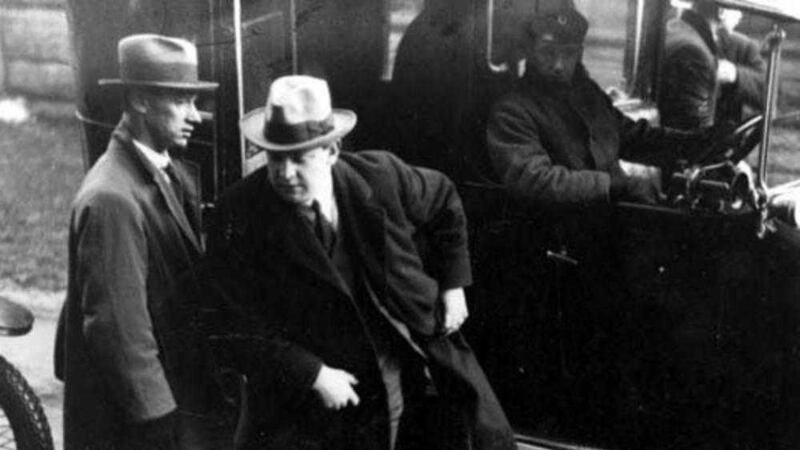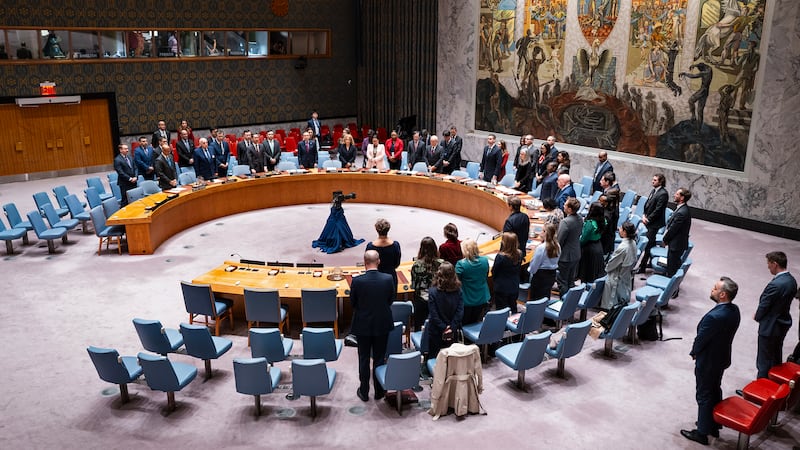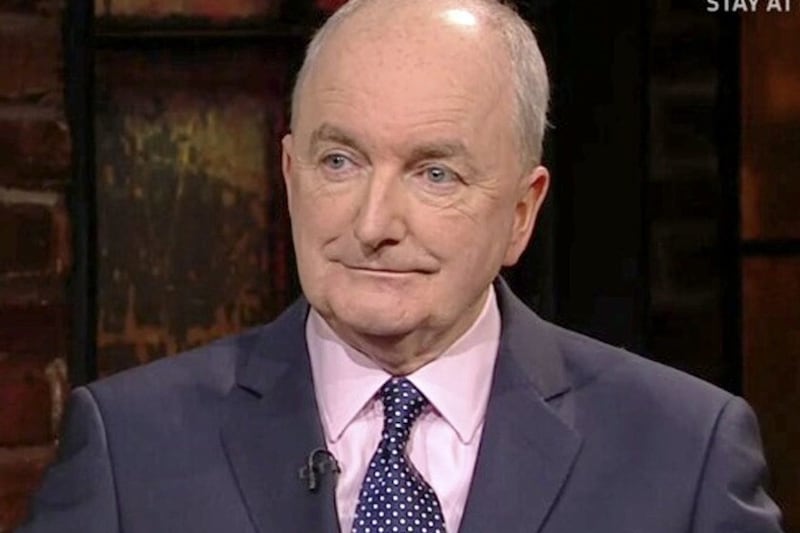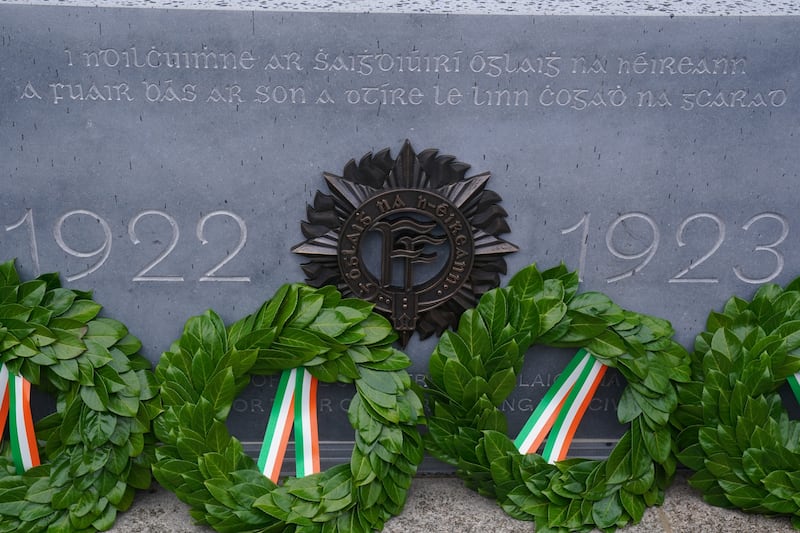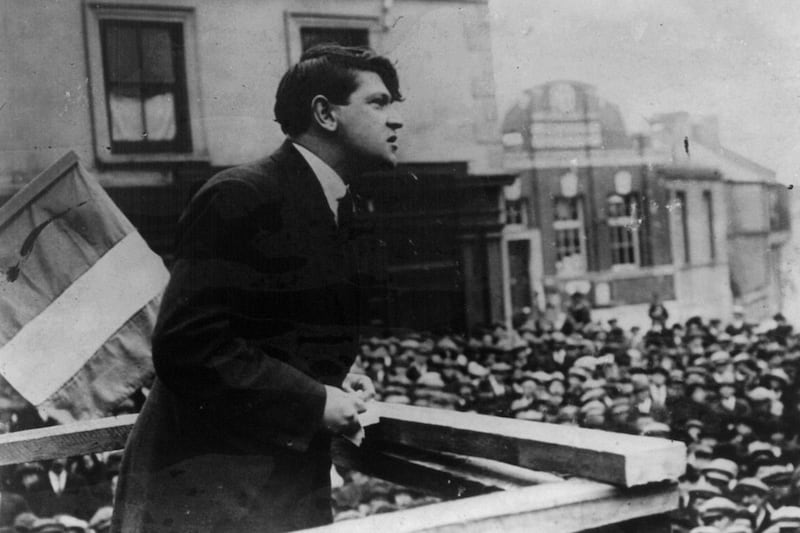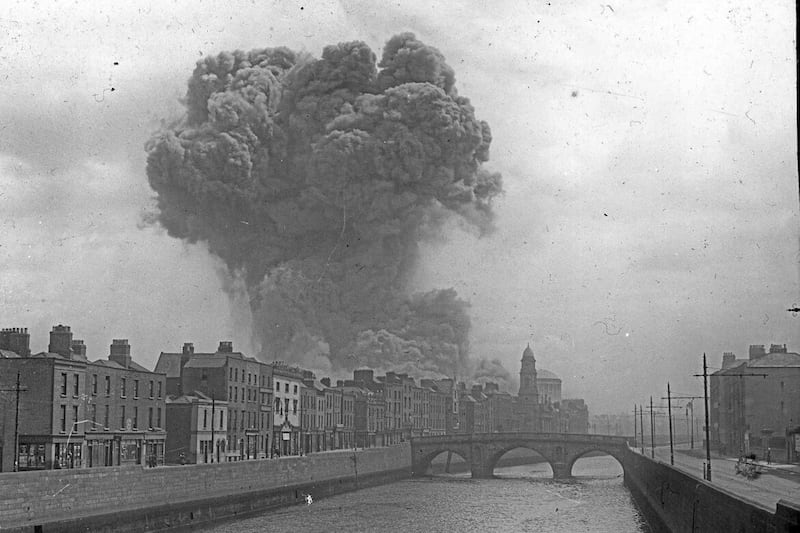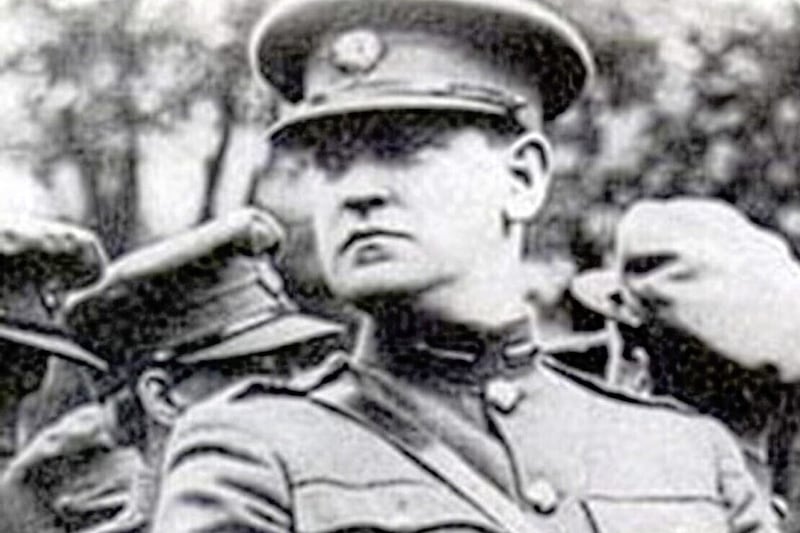Ahead of a conference in Armagh this weekend, John Monaghan delves into the secret files of a Co Derry priest whose interviews with Irish Volunteers from the north, who were involved in the republican movement from the Easter Rising until the 1921 treaty and beyond, can now be revealed for the first time.
MICHAEL Collins considered accounts about violence directed towards Catholics during trouble in the north as "exaggerated" and declined repeated requests to visit Belfast, according to historical interviews with senior republicans from the city.
Liam Gaynor, one of the chief organisers of the Irish Republican Brotherhood in the north in the period after the Easter Rising, made the comments in an interview with Fr Louis O’Kane in the 1960s.
The series examines recordings by the Aghaloo parish priest, who interviewed more than 100 former Irish Volunteers from the north involved in the republican movement from the Easter Rising until the War of Independence.
Participants in the most turbulent decade of Irish history spoke to Fr O’Kane on the strict condition the interviews, forming part of a fully booked conference in Armagh on Saturday, would not be made public until after their deaths.
After Fr O'Kane's death, the tapes were kept secure by the late Cardinal Tomás Ó Fiaich at Maynooth and Armagh. The recordings were digitalised in 2013 and have since been available to researchers at the Ó Fiaich Library and Archive in Armagh.
The conference, and talks scheduled for 2016, are part of the centre's Irish Volunteers Centenary Project, a two-year outreach initiative supported by the Heritage Lottery Fund.
Of his interview with Mr Gaynor, Fr O’Kane recalled: "He said often he told Collins about how harrowed the Catholics were in Belfast, and asked Collins to go there and see for himself, and that if he did the IRA of that city would furnish him with whatever guard he’d require; but he did not accept the challenge."
"Collins always considered that the stories about the pogrom were exaggerated and the only time he came to the north was when he was standing, during the Treaty, as Sinn Féin candidate for Co.Armagh."
However, the interviews also appear to show that the IRA leader conveyed a different message to other northern republicans.
A Derry volunteer, Thomas J.Kelly, spoke to Mr Collins at a meeting of officers a few days before his death, where the pro-treaty leader personally reassured northern officers that "he still had the six county problem very much in the front of his mind."
"He told us that with the civil war on his hands he couldn’t do all he wished to do for the north, so for the time being he was calling off military action and resuming the political talks with Craig."
"If, he said, the political weapon against the northern government failed, the Treaty could go to hell. He’d break that Treaty rather than let the north down. I was present when Collins said that ..."
Mr Kelly added: "The fact that these two northern divisions were wholly in the six counties area and that these were the only two divisions that were pro-Collins would prove that they believed Michael Collins when he said it was his intention to help the north to the utmost."
BULLET POINT - Following this Saturday's conference in Armagh, talks on the interviews will be held throughout Derry, Armagh, Louth and Belfast early next year. For more information contact Dónal McAnallen on 02837522981 or email dmcanallen@mail.com.
